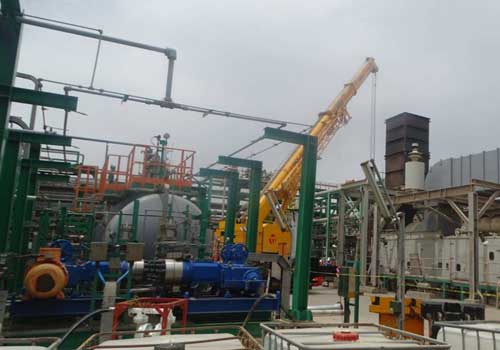
Heavy equipment rental rates vary depending on the type of equipment, the size of the equipment, the location of the rental, and the length of the rental period.
It is important to note that these rates are just a general guideline. The actual rates you pay may vary depending on the factors mentioned above. It is always best to contact a rental company directly to get an accurate quote.
Here are some additional tips for getting the best deal on heavy Equipment Rental:
Research Multiple Rental Companies
Researching multiple rental companies is a crucial step in finding the best deal on heavy equipment rentals. Here’s a more detailed guide on how to approach this:
Online Research: Start by conducting online research to identify heavy equipment rental companies in your area.
Check Reviews and Testimonials: Look for customer reviews and testimonials about each rental company.
Ask for Recommendations: Seek recommendations from colleagues, business associates, or others in your industry who have experience with heavy equipment rentals.
Visit Company Websites: Visit the websites of potential rental companies to gather information about their fleet, rental terms, and any special offers.
Compare Rental Rates: Request quotes from multiple companies for the specific type and size of equipment you need.
Evaluate Equipment Quality: Inquire about the age and condition of the equipment. Well-maintained, newer equipment may be more reliable and result in fewer issues during your rental period.
Understand Terms and Conditions: Thoroughly review the terms and conditions of each rental company.
Inquire About Availability: Ensure that the rental companies have the equipment you need available for the dates you require.
Ask About Additional Services: Inquire about any additional services offered by the rental companies, such as delivery and pickup services, on-site support services, or training.
Check for Special Offers: Ask if there are any ongoing promotions, discounts, or special offers. Rental companies may have seasonal promotions or incentives for long-term rentals.
Define Your Needs Clearly
Defining your needs clearly when it comes to heavy equipment rental is essential to ensure that you get the right equipment for your specific requirements. Here’s how you can go about it:
Identify the Type of Equipment: Clearly specify the type of heavy equipment you need. Whether it’s an excavator, bulldozer, crane, or another type, being specific helps rental companies provide accurate information and quotes.
Determine Equipment Size and Capacity: Understand the size and capacity requirements for the equipment. So choose the one that aligns with your project needs.
Consider Special Features: If there are specific features or attachments required for your project, make a list of these.
Assess Terrain and Environmental Conditions: Consider the terrain and environmental conditions of your project site.
Evaluate Project Duration: Determine the expected duration of the project. Rental rates often vary based on the length of the rental period, so having a clear understanding of your project timeline helps in obtaining accurate quotes.
Factor in Maintenance Requirements: If you’re renting for an extended period, inquire about maintenance schedules and responsibilities to ensure optimal performance.
Understand Safety Requirements: Be aware of any safety regulations or requirements specific to your industry or project. Ensure that the rented equipment meets all necessary safety standards.
Consider Operator Skill Level: Assess the skill level of the operators who will be using the equipment.
Budget Constraints: Clearly outline your budget constraints.
Communicate Project Specifics: Provide detailed information about your project, including its nature, scope, and any unique challenges.
Ask for Expert Advice: If you’re uncertain about the specific equipment you need, consult with experts in the field or the rental company’s representatives.
By defining your needs clearly, you not only ensure that you get the right heavy equipment for your project but also streamline the rental process, making it more efficient and cost-effective.
Check Equipment Condition
Here’s a guide on how to check the equipment condition:
Visual Inspection: Check for any visible leaks, loose parts, or missing components.
Inspect Fluid Levels: Check the fluid levels, including engine oil, hydraulic fluid, and coolant.
Examine Tires or Tracks: If applicable, inspect the tires or tracks for wear and tear. Check for any visible damage or irregularities.
Test Equipment Functions: Operate the equipment and test all functions. This includes moving parts, hydraulics, steering, brakes, and any specialized features.
Check for Leaks: Look for any signs of fluid leaks, both while the equipment is stationary and during operation. Leaks can indicate potential issues with the hydraulic system or other critical components.
Inspect Safety Features: Verify that all safety features are in working order. This includes lights, alarms, backup cameras, and any other safety mechanisms that are essential for the safe operation of the equipment.
Review Maintenance Records: Ask the rental company for maintenance records.
Check for Warning Signs: Pay attention to any warning lights or indicators on the equipment’s dashboard.
Ask About Recent Inspections: Some types of heavy equipment may require periodic inspections to ensure compliance with safety standards.
Communicate Any Concerns: If you notice any issues or have concerns about the equipment’s condition, communicate these to the rental company before finalizing the rental agreement. Document Condition: Take photos or videos of the equipment’s condition before use. This documentation can serve as evidence in case of any disputes regarding pre-existing damage.
By thoroughly checking the equipment’s condition before renting, you can minimize the risk of unexpected issues during your project and ensure a smoother and safer operation.
Understand Rental Terms
Here’s a guide on how to understand and navigate rental terms effectively:
Read the Rental Agreement: Carefully read the entire rental agreement provided by the rental company.
Rental Period: Understand whether the rental rates are based on hours of usage, days, weeks, or months. Clarify if there are penalties for exceeding the agreed-upon rental period.
Rates and Fees: Clearly understand the rental rates and any additional fees.
Deposit and Payment Terms: Inquire about the required deposit and payment terms.
Insurance Requirements: Check the insurance requirements outlined in the rental agreement. Determine whether the rental company provides insurance coverage for the equipment or if you need to secure your own coverage.
Safety and Operating Guidelines: Review any safety and operating guidelines provided by the rental company.
Termination Clause: Check for a termination clause in the rental agreement.
Equipment Condition at Pickup and Return: Note any pre-existing damage and communicate this with the rental company. This documentation can be crucial to avoid disputes.
Resale or Subleasing Restrictions: Be aware of any restrictions on reselling or subleasing the equipment.
Dispute Resolution: Review the dispute resolution process outlined in the agreement.
Regulatory Compliance: Ensure that the rental agreement and equipment use comply with local regulations and industry standards.
If there are any terms you don’t understand, don’t hesitate to ask the rental company for clarification.
Ask About Insurance
Here’s a guide on what to ask about insurance when renting heavy equipment:
Insurance Coverage Offered: Ask the rental company about the types of insurance coverage they offer for the rented equipment.
Damage Waiver: Ask about a damage waiver option. This can limit your financial responsibility for damages to the equipment under certain conditions.
Insurance Requirements: Determine if the rental company has specific insurance requirements.
Limits and Deductibles: Clarify the limits of coverage and any deductibles associated with the insurance.
Exclusions: Inquire about any exclusions or situations not covered by the insurance policy.
Verification of Coverage: If you have your own insurance, verify with the rental company that your coverage meets their requirements.
Equipment Condition Reporting: Understand the process for reporting the condition of the equipment at the beginning and end of the rental period.
Notification Process in Case of Accidents: Clarify the steps to take in case of an accident or damage to the equipment.
Additional Insured: If necessary, inquire about the possibility of adding the rental company as an additional insured on your insurance policy.
Rental Insurance Cost: Ask about the cost of insurance. Understand if insurance is included in the rental rate or if it is an additional fee.
Policy Documentation: Request a copy of the insurance policy or documentation that outlines the terms and conditions.
Alternative Insurance Options: Inquire if you have the option to use your own insurance, or if the rental company provides the only available insurance option.
By asking these questions and thoroughly understanding the insurance options, you can make informed decisions to protect yourself and your project during the heavy equipment rental period.
Consider Delivery and Pickup Costs
Here’s a guide on what to consider when it comes to these logistical aspects:
Delivery and Pickup Fees: Inquire about the specific fees associated with the delivery and pickup of the equipment.
Distance and Location: Understand how the distance and location of your project site impact the delivery and pickup costs.
Delivery Timing: Check if the rental company offers flexible delivery and pickup timing.
Site Accessibility: Assess the accessibility of your project site. Discuss any site-specific considerations with the rental company.
Equipment Size and Weight: Consider the size and weight of the rented equipment.
Additional Services: Inquire about any additional services related to delivery and pickup.
Delivery Confirmation Process: Establish a clear process for confirming the delivery and pickup.
Communication Protocols: Establish effective communication protocols with the rental company regarding delivery and pickup.
Schedule Coordination: Coordinate the delivery and pickup schedule with the project timeline.
Cost Comparison: Compare the delivery and pickup costs among different rental companies.
Terms in the Rental Agreement: Ensure that all details, including costs and responsibilities, are clearly outlined in the contract.
Insurance During Transportation: Inquire about insurance coverage during the transportation of the equipment.
By taking these factors into consideration, you can plan for and budget the delivery and pickup costs effectively as part of your overall heavy equipment rental expenses.
Check for Special Offers or Discounts
Here’s a guide on how to go about it:
- Visit the Rental Company’s Website.
- Promotional Banners or Sections.
- Contact the Rental Company.
- Ask About Seasonal Discounts.
- Check for Package Deals.
- Membership and Affiliation Discounts.
- Refer-a-Friend Programs.
- Social Media and Newsletters.
- Check Industry Publications.
- Ask About Custom Quotes.
- Negotiate Terms.
- Comparison Shopping.
By actively exploring these avenues, you increase the likelihood of securing the best deal on heavy equipment rental, taking advantage of any available promotions or discounts.
Review Customer Feedback
Here’s a guide on how to effectively review customer feedback:
- Check Online Review Platforms.
- Explore the Company’s Website.
- Social Media Presence.
- Industry Forums or Communities.
- Ask for Referrals.
- Check the Better Business Bureau (BBB).
- Evaluate Trends in Feedback
- Consider Both Positive and Negative Reviews.
- Response to Negative Feedback.
- Verify Specific Concerns.
- Company Ratings and Awards.
- Understand the Context.
By thoroughly reviewing customer feedback, you can gain valuable insights into the strengths and weaknesses of a heavy equipment rental company.
Attention that the goal is not just to find the lowest price, but to secure a reliable and cost-effective solution that meets your specific needs.
CLC Egypt’s work full of magnificent details.


